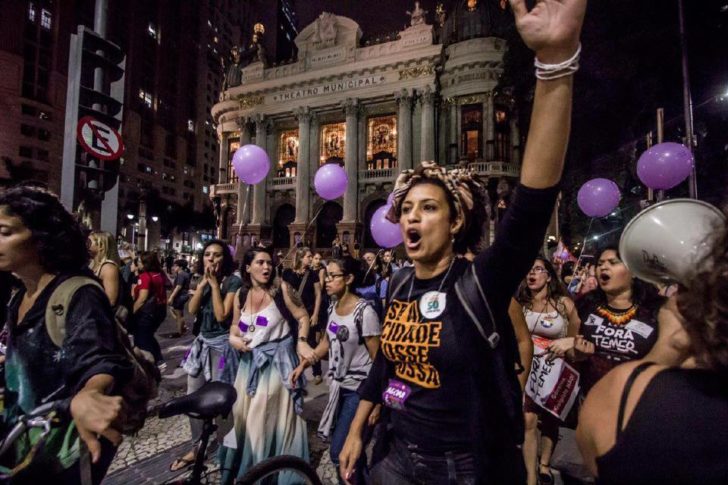A black woman born in the Favela da Maré shantytown in Rio de Janeiro, Marielle Franco was an activist fighting for the rights of those who live in the worst conditions. She was also a city councillor: in 2016, in her first election, she was one of the candidates who obtained the most votes.
Her murder occurred in the context of an alarming decision by the Brazilian government to intervene militarily in the state of Rio de Janeiro. Decree N°9.288, from February 16, 2018, ordered that a military official take over at the state’s Security Secretariat. The decree is extremely broad with regard to the conditions of the military intervention and, at the same time, vague about the mechanisms for political and judicial oversight of military conduct. Members of the federal public prosecutor’s office questioned the constitutionality of the decree and its compatibility with human rights standards. As if that weren’t enough, the highest military officials demanded “guarantees to act without the risk of a new truth commission arising,” which is to say, without being held accountable to society.
Marielle Franco’s murder fits in squarely with this request from military authorities. In her role as city councillor, she had been elected rapporteur for a municipal legislative committee charged with supervising the military intervention. This mission represented a continuation of her long record in denouncing police violence. Her assassination is a message of terror directed at activists and human rights defenders who today appear as the principal, and perhaps only, way of calling attention to and overseeing military and police officials. Intimidating and disciplining rights defenders is another attempt to guarantee the impunity of these forces.
In recent years, homicides in general and murders committed by police in particular have increased in Rio, returning to levels not seen since 2007. The militarized strategies adopted in the last 30 years to “combat drug trafficking” have done nothing but consolidate it. As long as the market for drugs that have been declared illegal is controlled by the coordinated action of gangs, police and militias (groups that are formed by police or ex-police), the military “solution” does not solve the problem, and only aggravates the violence.
CELS and other organizations from the region have denounced the troubling effects of militarizing security: it is ineffective for resolving problems related to the dynamics of crime, it serves as an excuse to not reform or democratize police forces, and it fundamentally results in grave human rights violations. Situations like that of Mexico – where dozens of activists and journalists have been murdered by the military, police and criminal groups alike – give rise to a scenario of widespread impunity and of massive human rights violations that is very difficult to undo. To keep Brazil from going down that road, it is urgent that there be a prompt and effective investigation into Marielle Franco’s murder, and a radical change in security policies aimed at reducing violence, rather than militarizing.

